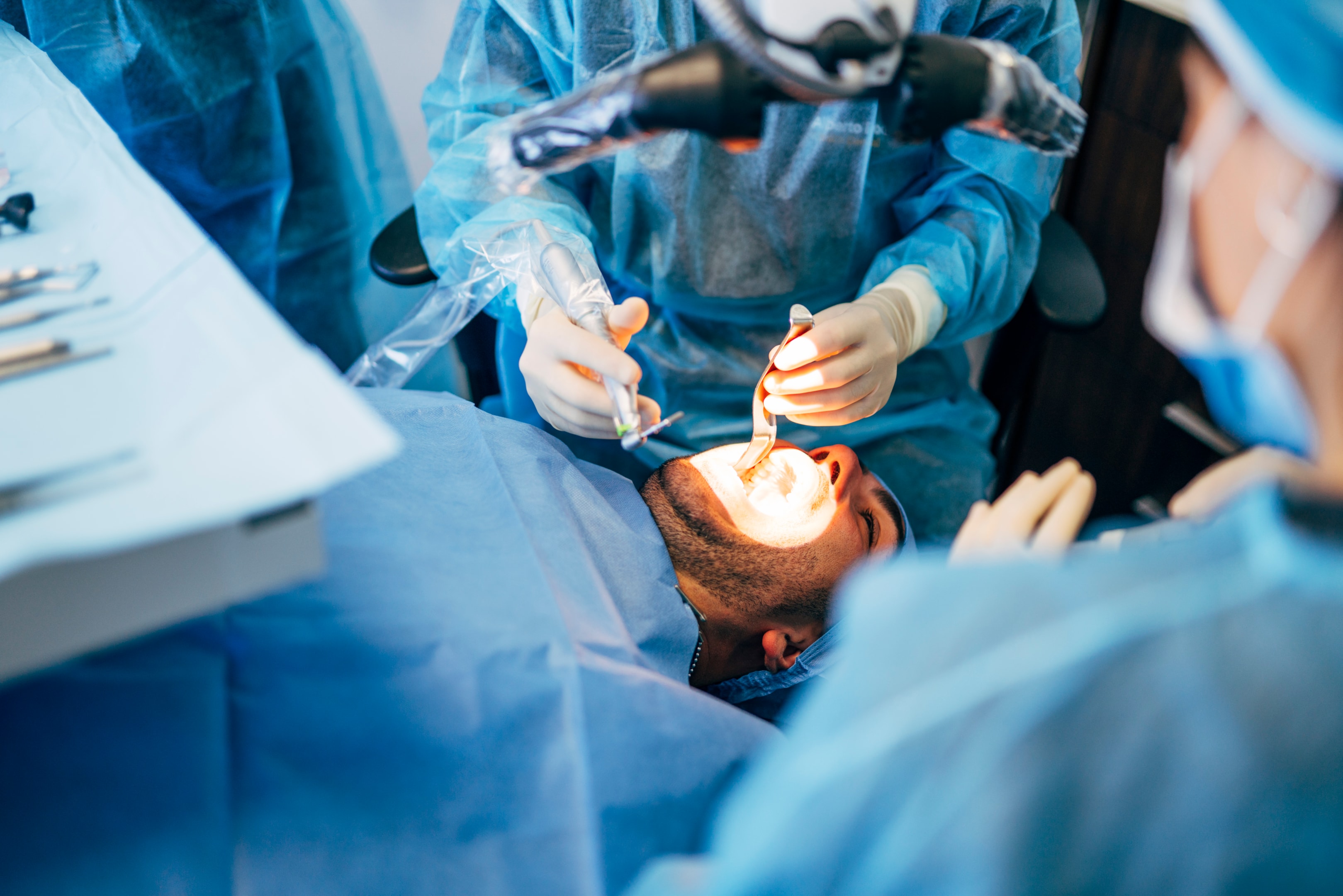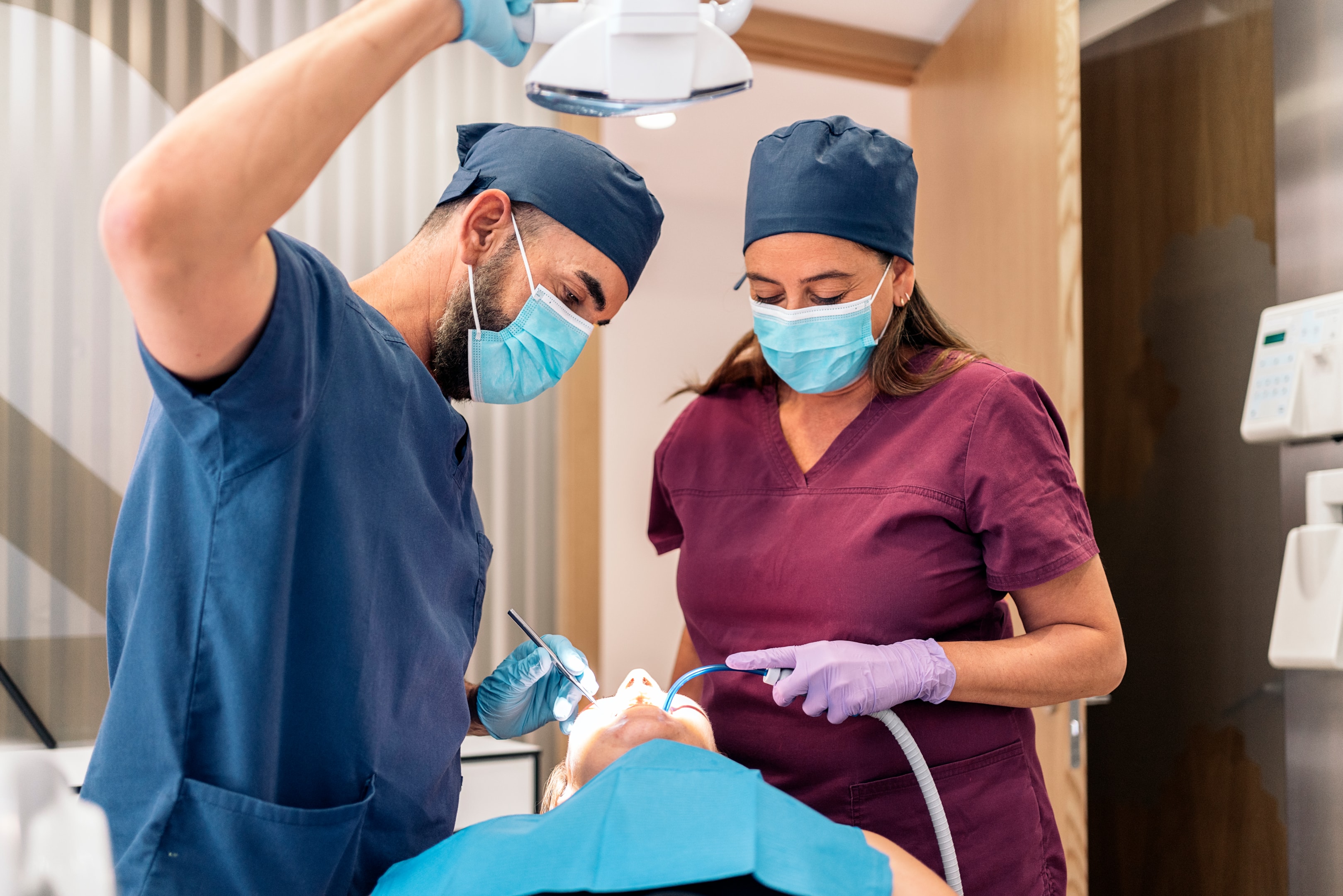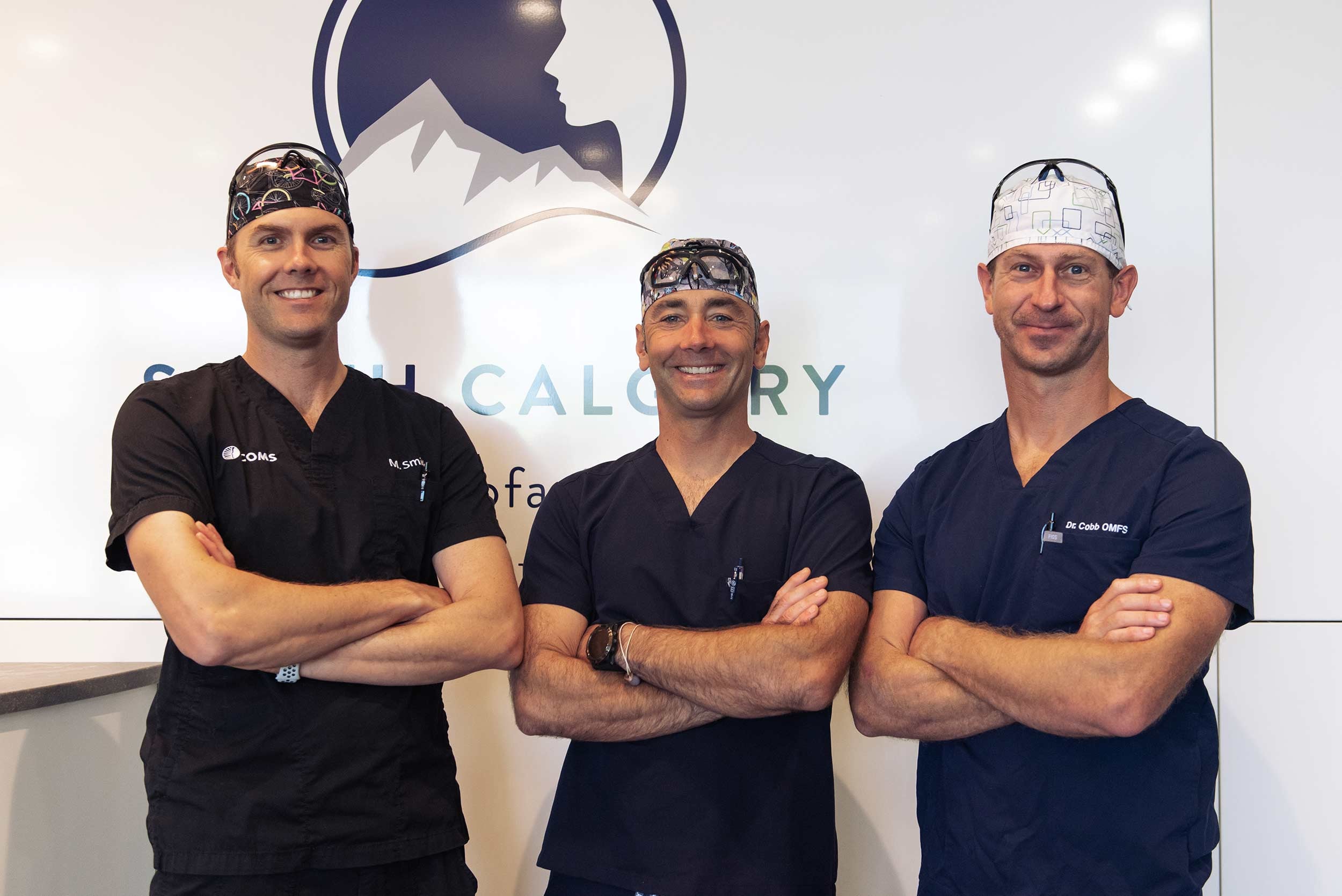
Introduction: When is Orthognathic Surgery Necessary?
Imagine trying to build a house without a solid foundation. You can have all the best materials, but if the base isn’t stable, the entire structure is at risk. The same goes for our jaws. Jaw reconstruction surgery is the foundation for restoring both the function and appearance of the jaw when it’s been compromised by injury, disease, or congenital conditions. These jaw problems often necessitate surgical intervention to correct imbalances and improve function. Corrective jaw surgery, a form of orthognathic surgery, is frequently used to address these alignment issues and enhance facial aesthetics. It’s a procedure that can significantly impact a patient’s quality of life, making it easier to eat, speak, and smile with confidence again.
In this blog, we’ll explore when jaw reconstruction surgery is needed, what the procedure entails, and why the expertise of an oral surgeon is crucial. We’ll also delve into the recovery process and what you can expect during your journey back to optimal oral health.
1. When is Jaw Reconstruction Surgery Needed?
Jaw reconstruction surgery isn’t something most people think about until they need it, but it plays a vital role in many situations. This surgery is often required following trauma, like a car accident, sports injury, or severe fall that fractures the jaw. Additionally, patients who suffer from oral cancer might need this surgery to rebuild areas of the jaw that were removed during cancer treatment. Congenital conditions, such as cleft palate or other craniofacial abnormalities, may also necessitate jaw reconstruction to improve both function and appearance.
Beyond these physical needs, jaw reconstruction can be necessary to address functional issues. If you’re struggling with jaw alignment problems that affect your ability to chew or speak, surgery may be recommended to reposition the jaw for better function. According to the Canadian Association of Oral and Maxillofacial Surgeons, jaw reconstruction can also alleviate pain associated with temporomandibular joint disorders (TMJ) when non-surgical treatments have failed.
Practical Tip: If you experience persistent pain, difficulty chewing, or notice any facial asymmetry, consult an oral and maxillofacial surgeon to discuss whether jaw reconstruction might be right for you. These experts often collaborate with orthodontists to create effective treatment plans, ensuring both functional and aesthetic improvements.
2. The Role of a Maxillofacial Surgeon in Jaw Reconstruction Surgery

Oral surgeons are like the architects and builders of jaw reconstruction. They bring a unique blend of surgical expertise, an understanding of dental anatomy, and experience in cosmetic restoration to ensure the best outcomes for their patients. At South Calgary Oral Surgery, our team of oral surgeons is trained to handle complex cases that require precise surgical techniques and careful planning, including orthognathic surgery.
Oral surgeons perform jaw surgery in a hospital or surgical center under general anesthesia. This ensures the patient is comfortable and pain-free throughout the procedure. The surgery itself involves using bone grafts or synthetic materials to rebuild the jaw structure. Sometimes, the surgeon might need to reposition the jaw to correct alignment issues. Mandibular osteotomy is a procedure specifically targeting the lower jaw, while maxillary osteotomy focuses on the upper jaw. The goal is always to restore both function and appearance, giving patients a stable, natural-looking jaw that works as it should.
According to Dr. Brad Fisher, an oral surgeon, “The expertise of an oral surgeon is critical in jaw surgery. We don’t just focus on the surgical repair; we also consider how the reconstructed jaw will function in the long term and aim to achieve the best aesthetic result.”
Practical Tip: Choose an oral surgeon with extensive experience in jaw reconstruction surgery to ensure you receive the best possible care and results.
3. What Does Jaw Reconstruction Surgery Entail?

Jaw surgery can vary significantly depending on the individual needs of the patient. The process often begins with a comprehensive evaluation, including imaging studies such as X-rays, CT scans, or MRIs to assess the extent of damage or deformity. The oral surgeon will then develop a customized surgical plan tailored to the patient’s specific condition and goals. Orthodontic treatment is often a crucial part of pre-surgical care to align teeth and jaws properly.
The surgery itself can range from relatively straightforward procedures, such as correcting minor jaw misalignments, to more complex operations involving multiple stages. In cases where bone grafting is required, the surgeon may use bone from the patient’s own body, such as the hip or rib, or opt for synthetic alternatives. The grafted bone helps to rebuild and strengthen areas where the jawbone is weak or missing. If dental implants are part of the reconstruction, these may be placed during the surgery or after the bone has healed, depending on the situation.
Recovery from jaw surgery can take several weeks to several months, depending on the complexity of the procedure and the patient’s overall health. During this time, patients need to follow a specific diet and avoid strenuous activities that could impact healing. Regular follow-up appointments with the oral surgeon are important to monitor the healing process and ensure the best possible outcome.
Practical Tip: Follow your oral surgeon’s post-operative instructions carefully, as these are designed to promote optimal healing and prevent complications.
4. The Importance of Pre- and Post-Surgery Care in Jaw Reconstruction
The journey to recovery begins well before the day of surgery. Pre-surgical care is critical to ensure the patient is in the best possible condition to undergo the procedure. This may involve stopping certain medications, adhering to a special diet, or undergoing a series of preparatory treatments.
Post-surgery care is equally important. After jaw surgery, including jaw reconstruction surgery, patients must carefully follow their oral surgeon’s instructions to avoid complications and promote healing. This often includes taking prescribed medications, adhering to a soft or liquid diet, and attending regular follow-up appointments. Maintaining good oral hygiene is essential, but patients must be cautious around the surgical site to avoid irritation or infection.
Dr. Miller Smith, an oral surgeon, emphasizes the significance of comprehensive care: “Jaw reconstruction is more than just a surgical procedure. It’s a journey that requires careful preparation and diligent post-operative care. The surgeon and patient must work together to ensure the best possible outcome.”
Practical Tip: Don’t hesitate to ask your surgeon about any concerns you have regarding pre- and post-surgery care. Being well-informed helps you better prepare and recover more smoothly.
5. What to Expect During Recovery: Long-Term Benefits

Recovery from jaw surgery is a gradual process, and patience is key. Most patients experience some swelling, bruising, and discomfort following the surgery. These symptoms are typically managed with pain medications and other supportive care. The initial healing phase can take anywhere from a few weeks to a month, during which the patient may need to limit physical activities and follow a special diet to avoid putting stress on the reconstructed jaw.
Jaw surgery can also improve conditions like obstructive sleep apnea by addressing airway obstructions that occur during sleep, thereby enhancing breathing and potentially curing sleep apnea for certain patients.
Longer-term recovery focuses on rebuilding strength and function in the jaw. Physical therapy exercises may be recommended to help restore normal movement and function. Patients may also need to adjust to changes in their bite or facial appearance, and additional cosmetic or restorative procedures may be needed to achieve the desired results.
Statistically, about 90% of patients report significant improvement in function and appearance following jaw reconstruction surgery. However, the recovery process can be challenging, requiring a strong support system and commitment to follow-up care.
Practical Tip: Prepare for recovery by arranging support from friends and family, setting up a comfortable recovery space at home, and ensuring you have all necessary medications and supplies on hand before your surgery.
6. Long-Term Benefits of Jaw Reconstruction Surgery
Jaw reconstruction surgery can be life-changing, offering both immediate and long-term benefits. In the short term, patients often experience relief from pain and improved function, making it easier to eat, speak, and breathe. In the long term, jaw reconstruction can prevent further oral health issues, such as misaligned teeth, gum disease, and jaw joint problems.
Moreover, reconstructing the jaw can have a profound impact on a patient’s self-esteem and quality of life. By restoring a natural appearance and eliminating functional impairments, patients can feel more confident and comfortable in social and professional settings. The team also offers chin surgery, specifically for correcting a small or deficient chin, which can significantly improve jaw and teeth alignment as part of a broader orthodontic treatment plan.
According to a study published in the Journal of Oral and Maxillofacial Surgery, patients who undergo jaw reconstruction surgery report a 70% improvement in quality of life, particularly in terms of social interactions and self-image.
Practical Tip: Remember that jaw reconstruction surgery is an investment in your long-term health and well-being. Consider both the immediate and future benefits when making your decision.
7. Why Choose South Calgary Oral Surgery for Your Jaw Reconstruction Needs?

At South Calgary Oral Surgery, we understand that jaw reconstruction surgery is a significant decision. Our team of experienced oral surgeons is committed to providing personalized care that meets the unique needs of each patient. Located just outside Calgary, AB, we serve the SE and SW Calgary communities and beyond, offering state-of-the-art facilities and a compassionate approach to care.
We believe in a patient-centered approach, which means we take the time to listen to your concerns, answer your questions, and provide detailed explanations of your treatment options. Our comprehensive approach to jaw reconstruction includes addressing imbalances in the upper and lower jaws and ensuring proper alignment of the upper and lower teeth. Specific procedures, such as mandibular osteotomy and genioplasty, are performed to reposition the upper jaw and lower jaw for better functional and aesthetic results. Additionally, surgeries can reposition the upper teeth and lower teeth to achieve an optimal fit and improved facial appearance. Our goal is to ensure that you feel comfortable and confident throughout your journey, from the initial consultation to the final follow-up appointment.
As Dr. Graham Cobb, a surgeon at South Calgary Oral Surgery, puts it: “We’re not just here to perform a procedure. We’re here to support our patients every step of the way, ensuring they achieve the best possible outcomes for their health and well-being.”
Practical Tip: Schedule a consultation with one of our skilled oral surgeons to discuss your needs and learn more about how we can help you achieve a healthy, functional, and aesthetically pleasing jaw.
Conclusion: Restoring Your Smile and Confidence with Jaw Reconstruction Surgery
Jaw reconstruction surgery is more than just a medical procedure; it’s a road to better health, improved function, and enhanced confidence. Whether you’re dealing with the aftermath of an injury, managing the effects of a congenital condition, or recovering from cancer treatment, this surgery can offer a new lease on life.
By choosing a skilled and experienced oral surgeon, like those at South Calgary Oral Surgery, you’re taking a crucial step toward achieving the best possible outcome. Remember, this journey requires preparation, patience, and a commitment to follow-up care, but the rewards – a fully functional and beautiful smile – are well worth the effort.
Final Thought: Your smile is a reflection of your inner strength and resilience. With jaw reconstruction surgery, you’re not just rebuilding bone—you’re rebuilding confidence, function, and your ability to live life to the fullest. Trust in the expertise of your oral surgeon, take each step with care, and know that a brighter, healthier future is within reach. At South Calgary Oral Surgery, we’re here to help you every step of the way.






